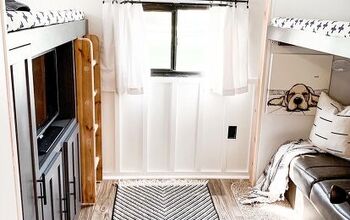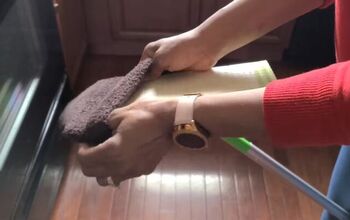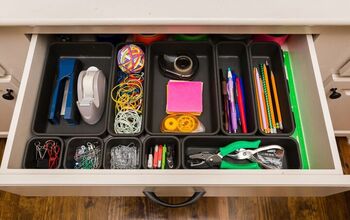5 Important Budgeting Tips & Tricks For Beginners

Do you want to know how to budget better? I’m going to give you my five best budgeting tips and tricks for your best budget ever. I’ll help you stay away from budget blunders that sabotage your budget. Here are my top budgeting tips for beginners.
1. Avoid ATM fees
I’m always amazed at how much people accumulate each month in ATM fees. Though it doesn’t seem like a lot of money to use another bank’s ATM machine, it adds up fast.
So you may be charged a fee when you take money out of the machine and then your bank may charge you an additional fee on your statement for using another bank’s ATM.
A transaction of any amount may cost you between $5 and $8.50 in the United States between both bank fees for taking out your own money! I have seen some people’s budgets have over $200 a month in ATM fees and they don’t even know it because they don’t check their statements.
Small transactions and small amounts can add up to a huge amount whether it’s fees or savings!
2. Plan ahead
By knowing how much cash you need on hand for the week, take it out once and from your bank. But in addition, my clients tell me that they were debt-free until Christmas hit and they had to use credit cards to buy gifts but they are still paying them off in the summer.
Instead, plan ahead. I looked at the year I spent the most money on Christmas–that includes not only gifts but Christmas cards, holiday trips, decor, and anything else. Add it all together and divide it per paycheck as a way to save.
But there’s also Mother’s Day, Father’s Day, and birthdays. You’ll be prepared if you save for all of this and when the time comes, it won’t bust your budget.
3. Use sinking funds
This is where you put the money for planning ahead. Now, I believe in keeping budgets simple. I also know people love to have different checking accounts and savings accounts.
But if you know yourself well, you know how you are with money. If you are like me, you will procrastinate and I won’t tackle a task, like saving for specific funds. I know if I keep it simple, I will succeed at budgeting.
So for me, I have three sinking funds. For me, it’s not complicated. We have our checking account, an emergency fund, and three sinking funds. For example, usually, our car’s oil change should cost $50 but it turns into a $400 transaction because of extras like tire rotation, etc. That drives me insane.
Now, I plan for it by setting up a sinking fund for that. When we get paid, we put a little bit every time into that sinking fund so when my husband is ready to take the cars in, it’s paid for and I won’t be frustrated.
The second sinking fund is for Christmas. The third sinking fund is for Disney! These funds help me stay frugal so I can save that money I would usually spend on frivolous things.
4. Plan where you’ll put extra cash
Whenever you think you will get extra cash, such as a bonus, refund, stimulus payment, or gifts of money, plan ahead where you want to put it.
Do you have credit card debt? Throw that money at the debt. Do you need more money in a sinking fund or savings accounts? Put it there. Don’t just leave it in your checking account. As soon as that money hits your bank account, move it over to where it is needed for a goal you are tackling.
If it sits in your checking account, you will think of a way to spend it that won’t help you get closer to your financial or savings goals. That’s self-sabotage.
5. Watch out for small transactions
In addition to ATM fees, watch for other things, such as lottery tickets, cups of coffee, and other items. For example, one time a coworker realized that the coffee she bought every day cost her $5 a day.
She realized that she was spending $25 a week. But $25 a week times 52 weeks in a year is $1,300 a year. Other co-workers eat lunch once or twice a week. They may spend about $13 a day.
Since I’m trying to crush money goals and save for another Disney vacation, I try to avoid eating out with them as much as I can.
To motivate me, have a visual cue. I put up a picture of the Disney castle on my computer monitor so that every time they ask me to lunch, I look at the photo to remind me of my goals so I am not so tempted to say yes.
Budgeting tips and tricks
Those are my top budget planning tips that work for me personally. The biggest thing I hope you can take away is that small transactions and small amounts can add up to a huge amount whether it’s in fees or if you’re adding to savings.
Let me know in the comments if you resonate with any of these ideas or if you’ve used them to save money for your goals.






















Comments
Join the conversation